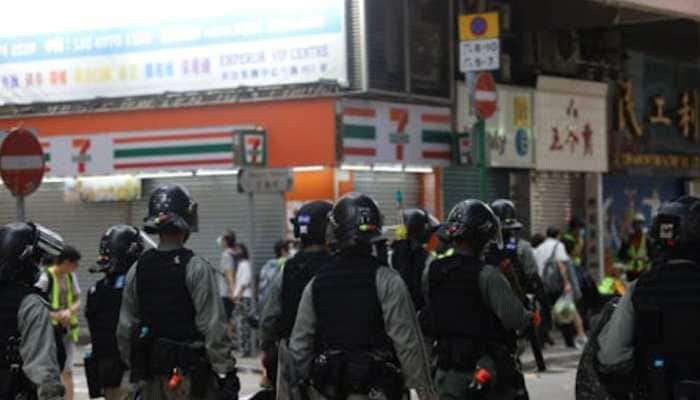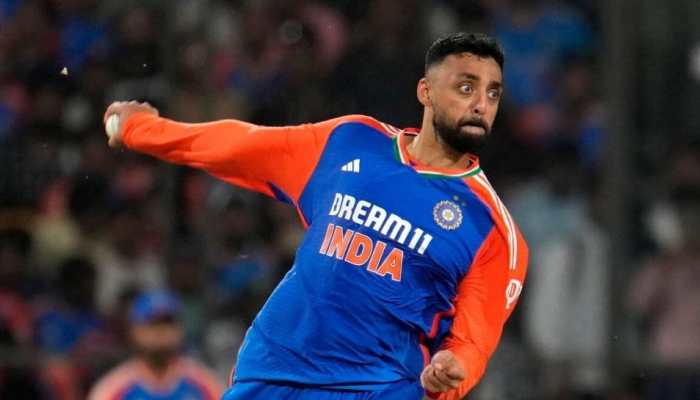Meet Justice Sanjiv Khanna Who Is Next In Line To Replace DY Chandrachud as Chief Justice Of India
Justice Sanjiv Khanna was elevated to the Supreme Court on January 18th, 2019
Trending Photos
)
New Delhi: Justice Sanjiv Khanna, who never headed any High Court as Chief Justice and served as a Judge of the Delhi High Court prior to his elevation to Supreme Court. Going by the seniority rule of the Supreme Court Judges, Justice Sanjiv Khanna is in line to become the next Chief Justice of India (CJI) in November 2024 for a seven month-tenure. Elevated as a Judge of the Supreme Court of India on 18 January 2019, he is due to retire on 13th May 2025.
Justice Khanna: Early Life
Born on 14th May 1960, Justice Sanjiv Khanna completed his schooling at Delhi's prestigious Modern School. He studied law at the Campus Law Centre, Delhi University. After graduating, he enrolled as an advocate in the Bar Council of Delhi in 1983.
Career As A Lawyer
After his enrolment, Justice Khana started practising taxation, arbitration, commercial law, environmental law, medical negligence law and company law at the Delhi High Court. He also served the Government of Delhi as an Additional Public Prosecutor in criminal law matters. Justice Khanna was also a Senior Standing Counsel for the Income Tax Department of Delhi for close to seven years. In 2004, he was appointed as Delhi’s Standing Counsel for civil law matters at the Delhi High Court.
Elevation As A Judge
Justice Khanna was appointed as an Additional Judge of the Delhi High Court on June 24th, 2005 and later as a permanent judge on February 20th 2006. At the Delhi High Court, Justice Khanna was associated with the Delhi Judicial Academy, the Delhi International Arbitration Centre and the district court mediation centres. He was elevated to the Supreme Court on January 18th, 2019. If the seniority rule is followed, he will likely be India’s 51st CJI and assume office in November 2024.
Notable Rulings
Shilpa Sailesh v Varun Sreenivasan Case: In this case, Justice Khanna held that the Supreme Court has the power to directly grant a divorce under Article 142 of the Constitution. Justice Khanna stated that the top court could grant a divorce under the grounds of ‘irretrievable breakdown of marriage’ to grant ‘complete justice’.
Revising Fee Scale for Arbitrators Case: In this case, Justice Khanna wrote a dissenting note on the limited point that in the absence of an arbitration agreement, the arbitral tribunal is entitled to fix a reasonable fee.
Justice Khanna also authored the majority opinion in the CPIO, Supreme Court v Subhash Chandra Agarwal judgement, popularly known as the RTI judgement. The 5-Judge Bench had to decide if subjecting the Office of the Chief Justice (OCJ) to RTI requests curtailed the independence of the judiciary. Justice Khanna wrote that judicial independence does not necessarily oppose the right to information. Whether or not the OCJ should fulfil RTI requests must be decided on a case-by-case basis. 5-Judge Bench concluded that the Court’s Chief Public Information Officer must decide if the disclosure is in the larger public interest by weighing it against the right to privacy of judges. While at the SC, Khanna J has written 65 Judgments, which accounts for nearly 26.6% of the 275 Benches that he has been a part of.
SC Collegium
The apex court has a sanctioned strength of 34 judges, including the CJI, and the number is set to go down to 27 again with the retirement of Justice S Abdul Nazeer on January 4. Out of the 28 judges at present, nine are scheduled to retire in 2023. Sources said the composition of the Collegium, which usually comprises the CJI and four senior-most judges who decide the appointment of judges to the apex court, has undergone a change and now it has six members with the entry of Justice Sanjiv Khanna.
The change in the Collegium has occurred due to the fact that after the CJI, none of the four senior-most apex court judges — justices S K Kaul, S Abdul Nazeer, K M Joseph and M R Shah — would become the head of the judiciary. The convention has it that besides the CJI there is at least one future CJI in the Collegium that makes recommendations to the Union government for appointment of judges in the apex court.
Of late, the Collegium system has become a major flashpoint between the Supreme Court and the central government, with the mechanism of judges appointing judges drawing criticism from different quarters.
Stay informed on all the latest news, real-time breaking news updates, and follow all the important headlines in india news and world News on Zee News.
Live Tv







)
)
)
)
)
)
)
)
)
)
